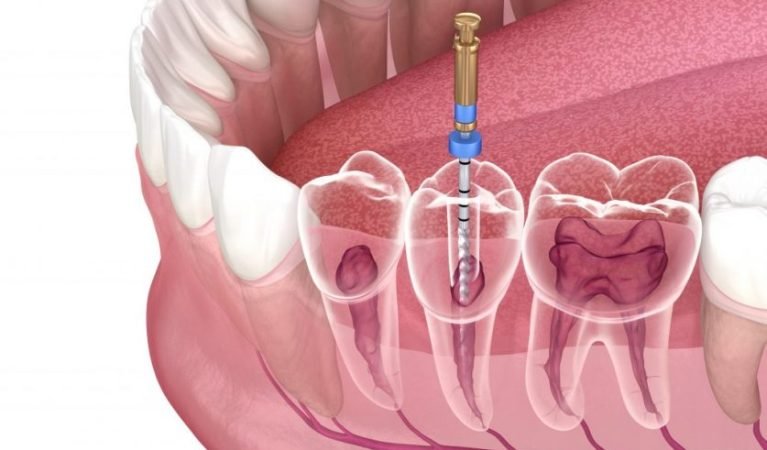
A root canal is a process that involves the removal of the soft center of the tooth and pulp. The pulp consists of nerves, blood vessels, and connective tissue that helps the tooth to grow. In most cases, a Root Canal Dentist or endodontist will perform a root canal under local anesthesia.
When is a root canal needed?
The Dentist Near Me performs a root canal when the inner part of your tooth, called the pulp, is injured or becomes infected.
The crown of the tooth, the outermost part of the tooth, can remain if the pulp is dead. Removing injured or infected pulp from your tooth is the best way to preserve the tooth structure.
Common causes of damage to the pulp include
- Deep decay due to an untreated cavity
- Multiple dental procedures on the same tooth
- A chipped or crack a tooth
- An injury to the tooth can cause a cavity or crack and hence pulp is damaged
The most common symptoms of the dead pulp include pain in your tooth, swelling, and the sensation of hot and cold in your gums. Your dentist will examine the tooth and take X-rays to confirm the problem. Your dentist may refer you to an endodontist for the Root Canal Houston if needed.
How is a root canal performed?
Step 1: Anesthetic
The Root Canal Dentist Near Me will inject a small amount of numbing medication into your gum near the affected tooth. Once it has taken effect, you may feel a sharp burning sensation, but this will pass quickly. You will remain awake during the procedure, but the anesthetic will keep you away from any feeling or pain.
Step 2: Removing the pulp
When your tooth is numb, Your dentist will make a small opening in the top of your tooth.
Once the damaged pulp is exposed, the dentist carefully starts removing it using special tools called files. They will be particularly careful to clean out all the canals and nerve tissues in your tooth.
Step 3: Antibiotics
Once the pulp is out, the dentist may coat the area with a topical antibiotic to ensure that the infection is removed and to prevent reinfection. Once the canals are cleaned and infection-free, the dentist will fill the tooth with a sealer paste and gutta-percha. They will also prescribe you antibiotics.
Step 4: Temporary filling
In the end, the dentist fills the small opening in the top of your tooth with a soft and temporary material. The sealant helps to prevent the canals from saliva and other bacterial damage.
Follow-up after your root canal
Your tooth and gums may feel some soreness while the numbing medication wears off your gums and sometimes swollen up.
Most dentists prescribe acetaminophen(Tylenol) or ibuprofen, to treat these types of post-treatment symptoms. You can visit a root canal specialist near me if the pain becomes extreme or lasts more than a few days.
You can resume your daily normal activities the day after the procedure. Avoid eating with the damaged tooth until it’s permanently filled or the dentist may apply a crown over it.
YOU MIGHT ALSO LIKE
ABOUT ME

Welcome to my blog Artcle slurp. We share latest article for all niche. If you want to publish your article then mail me on articleslurpblog@gmail.com




































